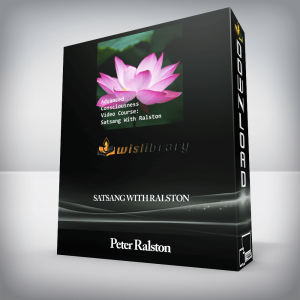Total Size:Digital products: Get the download link at Account or directly via email.Support: LifetimeDownload: Unlimited Of Course 2-Day: Depression and Mood Disorder Certification Training: New Assessment and Treatment Techniques for Lasting Recovery – Chris AikenPurchase 2-Day: Depression and Mood Disorder Certification Training: New Assessment and Treatment Techniques for Lasting Recovery – Chris Aiken courses at here with PRICE $149.99 $72When purchasing 2-Day: Depression and Mood Disorder Certification Training: New Assessment and Treatment Techniques for Lasting Recovery – Chris Aiken course, You can get it with the LIFETIME SUPPORT and UNLIMITED DOWNLOAD.2-Day: Depression and Mood Disorder Certification Training: New Assessment and Treatment Techniques for Lasting Recovery – Chris AikenYour clients with depression, bipolar, and other mood disorders are counting on you. But successful treatment can feel like an impossible task.Diagnosis is tricky, first-line treatments often fail, poor treatment compliance and destructive impulsivity feel like the norm, and recurrence seems the rule and not the exception. And you frequently need to work around medication use that comes with serious side effects, but often fails to offer real benefits. The litany of challenges can leave you feeling exhausted, ineffective, and troubled about the potentially devastating outcomes of treatment failure.This 2-day recorded training is exactly what you need to help your clients achieve a fuller recovery from depression and bipolar disorder, all without resorting to potentially risky and ineffective medication use.Join depression and mood disorder expert and author Chris Aiken, MD, and get cutting-edge therapeutic techniques, skills, and practical guidance so you can assess for and effectively treat mood disorders better than ever before.Watch and discover:New assessment tools for your practice – demystify the DSM-5™ for mood disordersThe latest psychotherapy techniques including Rumination-Focused CBT, Social Rhythm Therapy and CBT for InsomniaNutritional psychiatry and the first clinically proven diet to treat depressionBetter still, you’ll complete this recording met the full educational requirements should you choose to pursue the Certified Depression & Mood Disorder Treatment Professional (CDMDTP) credentials through the Institute of Depression Treatment Professionals (visit icdtp.com for full details and certification requirements).Purchase today and this training will leave you feeling confident that your treatment toolbox has the right combination of clinical interventions so your clients can find relief and live the lives they deserve!PLUS FREE Materials for Your Clinical ToolboxMood spectrum chartPractical Rating ScalesSocial Rhythm ChartAntidepressant Apps24 Character Strength SurveyThe MediMod Diet for DepressionAnd moreConduct a collaborative assessment that avoids the stigma clients often associate with mood diagnoses.Differentiate among the affective temperaments of dysthymic, cyclothymic, hyperthymic, and irritable types.Characterize how psychological trauma affects mood disorders differently.Distinguish between borderline personality disorder and bipolar disorder.List the more common cooccurring disorders of the depressed client.Demonstrate how to create a more effective and practical mood chart for clients to complete as homework.Examine how to improve behavioral activation results by incorporating the client’s values.Explain how ruminative thinking drives depression.Summarize the evidence-base for the Rumination Focused CBT model.Recommend techniques that mange countertransference to mania and depression.Consider the therapeutic alliance and ethical issues around including family members in therapy sessions.Devise an emergency plan with clients and family in readiness for mania, hospitalization and suicidality.Create an attainable treatment plan that derived from Social Rhythm Therapy.Summarize the neuroscience of inflammation and insomnia with depression and bipolar disorder.List the known risks and often contraindicated use of antidepressants in the treatment of bipolar disorder.Describe behavioral approaches that address medication adherence.The Mood Spectrum: Diagnosis in the DSM-5™ EraMajor Depressive DisorderPersistent Depressive DisorderDepression with Mixed FeaturesCyclothymic DisorderBipolar II DisorderBipolar I DisorderSpecifiers: Anxious distress, melancholic, atypical, seasonal & peripartum moodsMania, hypomania, mixed states: How to recognize eachDifferential diagnosis: Anxiety, addiction, ADHD, eating disorders, substance abuseBipolar Disorder or Borderline Personality Disorder?Assessment: Practical Tips, Evidence-Based Tools, and Subclinical FeaturesHow to avoid over-diagnosingEvidence-based measures: MINI-7; PHQ-9, MDQ, Bipolarity Index, & Hypomania ChecklistWhy traditional mood charting doesn’t work – and what to do insteadAffective temperaments: Depressive, Hyperthymic, Cyclothymic and IrritableRumination, cognitive deficits, and early warning signsConceptualizing mood through the lens of energy, not emotionClassic v. atypical Bipolar DisorderWhen mood is shaped by traumaTHERAPY FOR MOOD DISORDERS: FROM EVIDENCE-BASED TREATMENTS TO A PERSONALIZED PLANMood Disorder Must-Haves for Every Treatment PlanPsychoeducation – reduce stigma, identify causes, focus on preventionPsychotherapy – how to match mood with the approachConcrete interventions – create a “menu” the client can choose fromPositive psychology: the unique strengths of mood disordersFamily therapy – communication skills, boundaries, crisis plansRemediation strategies for building back cognitive skills deficitsBehavioral Activation: More Than Building a Busy ScheduleNeuroscience: Turning down the brain’s default mood networkIntegrating values and meaning in behavioral changeHow behavior challenges depressive beliefsStrategies: Opposite action, approach-avoidance, mindful mediaRumination-Focused CBT (RF-CBT)How is RF-CBT different from traditional CBT?Useful v. dysfunctional ruminationThe benefits of ruminationShift from avoidant rumination to absorbing actionThe neurobiological basis of RF-CBTStrategies: Chain analysis, habit changing, immersion, mindfulness and compassionate thoughtCognitive Behavioral Analysis System of Psychotherapy (CBASP)An attachment-based approach to treating mood disordersPreoperational thinking: Why chronic depression is slow to changePositive and negative reinforcement in chronic depressionEvidence to support CBASP for chronic depressionStrategies: Interpersonal inventory, situational analysis, interpersonal discriminationSocial Rhythm TherapyTherapy with a biological basisFour routines that stabilize the biological clockCircadian rhythms, neurohormones and neuroplasticityStrategies: Brisk awakening, zeitgebers, social rhythm chartCognitive Behavioral Therapy for InsomniaHow a therapy for sleep treats depressionSleep drive and circadian rhythmsThe vicious cycle of anxiety and insomniaBasic steps: Sleep hygieneAdvanced moves: Bed restrictionSpecial situations: Screen time, jet-lag, napping, night owls, and shift workAn Antidepressant LifestyleNutrition: The MediMod Diet, probiotics, caffeine, alcohol and sugarPhysical Activity: When, where, how muchEnvironment: Dawn simulation, light and dark therapies, nature, music, aromatherapy and air ionizationMedicationWhy a clear diagnosis is crucial before starting any medicationAnti-depressants and mood stabilizers: New classes, old standardsBenefits, risks, side effects; how to recognize problemsHow medication impacts therapy: State-dependent learningThe Medication Interest Model: A Motivational Interview for Medication AdherenceTop supplements for mood disorderBeyond medication: Transcranial Magnetic Stimulation, Electroconvulsive Therapy, esKatamineCrisis Intervention The therapeutic relationship with the suicidal clientA collaborative approach to risk assessmentWhich symptoms warrant hospitalization?CBT for Suicidality: How therapy can present suicideStrategies: Hope box, coping cards, and distress tolerance skillsEmergency planningClinical ConsiderationsCountertransference issues in depression and maniaStaying within your scope of practiceChildren and adolescents: DMDD v. Bipolar DisorderMulticultural considerationsAre you interested in? depression and anxiety relie; depression workbook; depression is a liar; depression depression relief; depression and anxiety relief booksPurchasing 2-Day: Depression and Mood Disorder Certification Training: New Assessment and Treatment Techniques for Lasting Recovery – Chris Aiken course now, You can get it with the LIFETIME SUPPORT and UNLIMITED DOWNLOAD.Purchase 2-Day: Depression and Mood Disorder Certification Training: New Assessment and Treatment Techniques for Lasting Recovery – Chris Aiken courses at here with PRICE $149.99 $72

 Telehealth During a Pandemic: Revolutionizing Healthcare Delivery – Steven Atkinson
₹11,952.00
Telehealth During a Pandemic: Revolutionizing Healthcare Delivery – Steven Atkinson
₹11,952.00
 2-Day: Stroke Rehabilitation Intensive Training Course: Best Practices for Rapid Functional Gains and Improved Outcomes – Benjamin White
₹11,952.00
2-Day: Stroke Rehabilitation Intensive Training Course: Best Practices for Rapid Functional Gains and Improved Outcomes – Benjamin White
₹11,952.00
2-Day: Depression and Mood Disorder Certification Training: New Assessment and Treatment Techniques for Lasting Recovery – Chris Aiken
₹11,952.00




